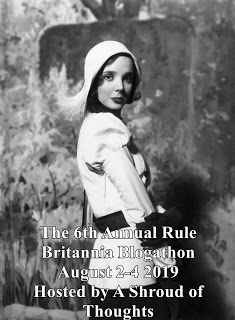At no point in Gregory’s Girl does writer and director Forsyth wait for the audience. He’s not hurried, he’s not hostile, he’s just not repeating himself. Ever. The result is a whimsical but grounded film, not exploring much more than its characters could handle and often trying to make space to find some everyday magic. Forsyth doesn’t establish the limits of this magic until he goes rather far with it, which sort of retroactively makes earlier scenes more in the same category. The film doesn’t have a jumpy narrative pace but it does have a speedy one. The pace is key to the film’s particular charm and second only in importance to leading man John Gordon Sinclair.
Sinclair is disarming, sincere, and awkward. His closest confidante, the film goes on to reveal (after the first “act”), is little sister Allison Forster. Sinclair’s home situation, which does get covered at the beginning, appears to be one of ships passing the night. The film introduces his father (Dave Anderson) and mentions his mother, but they’re not part of Sinclair’s regular day and the film is all about the regular days of its cast. When Forster comes in, she helps explain why Sinclair’s so awkward. It’s not just because he grew five inches over the last year to tower over everyone else at school, teachers included, but because instead of having teenage boys as his primary social influence, it’s soulful ten year-old Forster. She’s already got a beau of her own, in what might be the film’s most mature onscreen relationship; the tweens understand dating, the teenage girls understand dating, the teenage boys not so much.
Forsyth gets a lot of quiet humor out of Forster’s beau, Denis Criman. He’s a similarly soulful ten year-old. He and Sinclair have a great scene together.
Albeit one where Forsyth’s limited composition techniques gets in the way—Forsyth relies way too heavily on close-ups, which could be a budgetary thing, but it’d be nice to have a two shot for some of the banter; the two shots do eventually come in, at the end of the film for the… action-packed (at least from Sinclair’s perspective) finale. Their arrival isn’t just welcome, it’s noticeable. Gregory’s Girl never amps up the pace or drama. Forsyth never changes the gentle, lyrical, detached narrative distance.
Including when Forster comes in—sorry, there’s something else to talk about with that sequence. Forsyth juxtaposes soulful Forster, with her wise-beyond-her-years (or just appropriately pre-hormonal) understanding of coupling, with already graduated Douglas Sannachan coming back to visit his pals. While Sannachan is explaining the sexual conquests being a window cleaner allows, Forster is hanging back, waiting to give Sinclair better advice. Forsyth constantly plays with the idea of mutual exclusivities in the film. Boarish bullshitter versus sweet and sincere, for instance.
But then there’s also the whole football thing.
Soccer football.
In addition to all the boys getting interest in the girls—though the film doesn’t discount the possibility they could be interested in boys (Gregory’s Girl, which doesn’t have homophobia or bullying, is a decidedly un-American teen movie)—they’re interested in footy. One of the main plot lines involves football coach Jake D’Arcy demoting former star striker Sinclair (he grew, it’s not his fault, he’s got too much height now to walk properly) to goalie and getting a new striker. Turns out the best striker in the school is a girl, Dee Hepburn. Sinclair immediately falls for Hepburn, watching how she can control the ball, while D’Arcy goes on this “girls can’t play boys sports but wait she’s better” arc. Only it’s a really quiet arc. Meanwhile Hepburn’s got to fight the preconceived notions. For the first two “acts” (quotation marks because it’s pointless to think about the film epically), Forsyth splits the narrative between Sinclair, D’Arcy, and Hepburn. Once the football ends—once Sinclair outgrows it—he’s ready for romance.
Even if he doesn’t understand it.
The only other subplot to last until the finish is Robert Buchanan and Graham Thompson’s. They’re comic relief; the boys even more inept at the romance than Sinclair. They’re a lot of fun. Thompson’s the silent one, Buchanan’s the motormouth. Their subplot is mostly aside from Sinclair’s main one, but the threads intersect early on to lay the groundwork for a pay-off in the finale. It’s another of the lovely, deliberate moves in Forsyth’s script. If only he liked two shots more.
Nice photography from Michael Coulter, fun smooth jazz score from Colin Tully. John How’s cuts are always a little too rushed, especially with the lack of coverage, but maybe the lack of coverage is why the cuts are a little too rushed.
Forsyth’s got some big moves he saves for the end (might be nice if they’d been foreshadowed) and they’re more than worth the wait. Gregory’s Girl is a delightful peculiarity.
This post is part of the 6th Annual Rule, Britannia Blogathon hosted by Terence Towles Canote of A Shroud of Thoughts.


Leave a reply to mercurie80 Cancel reply